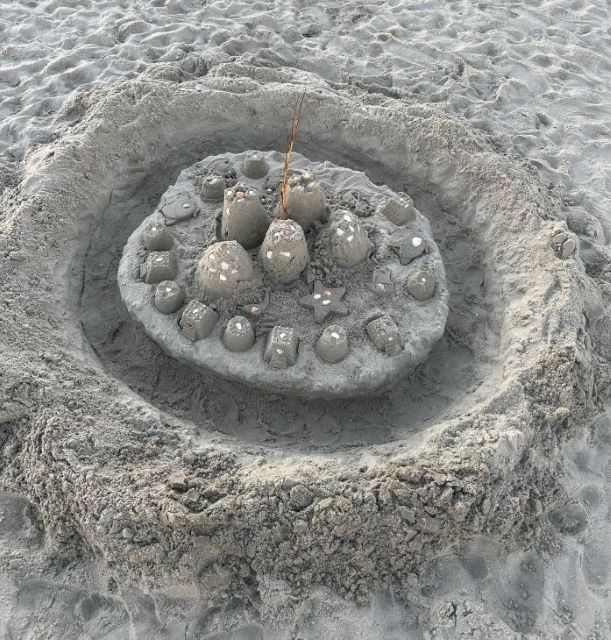We all love and are proud of our children. For some of us – or maybe many of us – with adult children, there comes a reckoning. We may not have had a clear picture of exactly how their lives would turn out, but maybe we had subconsciously created our own dreams and visions for their future. Maybe they are living most of what we imagined, but there are segments of their lives that are quite unexpected.
The reckoning is seeing and accepting our adult children for who they are and the choices they make, even if we wouldn’t make those same choices for them. It’s respecting their differences and giving them the room to make mistakes.
With all this reckoning, accepting and respecting, there can also be a feeling of grief. I was in a master’s program and had to choose from a much picked over list of topics for a research paper. I chose disenfranchised grief, even though I didn’t know what it meant at the time.
Disenfranchised grief is the sadness society hasn’t yet sanctioned. There are no Hallmark cards. In previous decades, mourning the loss of a beloved pet would include disenfranchised grief. People would say, “It’s just a dog.” It’s hard to believe now.
Parents who have lost children experience this type of grief when their child’s peers achieve life milestones like weddings and having children. They feel all they’ve lost all over again. They feel it, but it is largely unrecognized by those around them.
This stage of life with adult children has its own forms of disenfranchised grief. We may feel little bits of sorrow, but we are so focused on saying our kids are “Great!” that we never let the sorrow have any air. Maybe we hadn’t specifically planned everything out for their futures, but there is a nagging voice in our heads saying, “It’s not this.”
Maybe we thought they would live closer to us, and there would be Sunday dinners and sleepovers with the grandkids. We may have held out hope for awhile that might happen, but all signs are pointing to them remaining a plane ride away.
We may have brought our children up in a particular faith in which they no longer participate or believe. Perhaps political affiliation has been passed down for generations, but our child chose a different party.
Some of us might see our children having a spotty job record or no career path. Our adult children might be mostly interested in beer money for the weekend, and we worry about the eventual rainy day that will come and create serious financial problems for them. Opposite that is the adult child who works constantly with no consideration for developing a life with a partner, friends and social activities. “What if they end up alone?” we worry.
Then there are the partners they choose. Wow, this is a big issue. Some seem too controlling or too lazy or too self-absorbed or too crazy. “It’s not that I don’t like them, it’s just they’re too…” We wonder how our child could possibly be happy with this person. Even worse is the partner who wants to sow discord between you and your child.
Perhaps our adult child’s in-laws may be a more dominant force in their lives, and we could be feeling left out or replaced. They might be the grandparents who live close by and are at all the grandchildren’s ball games and school events, while we fly out twice a year.
Some of our children might opt out of parenthood altogether. This can radically alter our vision for our retirement years. The holidays traditions we hoped to pass on to the next generation will stay just between us and our kids.
We might feel concern our child’s circle of friends might be influencing them in ways we wish they wouldn’t. Their friends make unhealthy choices or spend money too freely or don’t take their jobs seriously. Their friends might take advantage of our child or not be there for them when we know our child has been there for them.
There are so many of us dealing with our children’s chronic issues. Whether it is a job they hate, a breakup they didn’t want, depression, anxiety, or any number of problems – we have been good listeners. We have been supportive and offered advice. We have been empathetic. We have been all the things, but the problem persists. “You really need to talk to a professional,” we offer. They might resist and tell us they feel better after talking to us. They feel better, but maybe we don’t.
We may be divorced, and our ex is throwing money around at our children trying to buy closeness. It’s working, and our hearts are broken. “How can they not see through this?” we wonder to ourselves.
Then there are the unhealthy choices. They haven’t eaten a vegetable in ten days, and we don’t understand why they don’t make better meals for themselves. They have gained quite a bit of weight and aren’t exercising, and we know it isn’t our place to criticize, but we worry about them.
Then there are the really unhealthy choices – they are drinking too much or doing drugs or both. We feel they aren’t managing life well, but they are adults and can make their own choices. They may not be at rock bottom, but we can see they are floating among the muck. And we get to just watch that.
Drugs and alcohol can lead to financial issues as well. Some of our kids don’t have addiction issues but are just plain old poor money managers. We don’t know their level of credit card debt, but we do worry they don’t really understand they have to pay it all back, and they definitely didn’t learn the principle of compound interest.
They are adulting, and it’s not going the way we had hoped. A friend I’ve often referenced, who is a therapist, said, “Don’t say anything to your adult children you wouldn’t say to a houseguest.” If you wouldn’t tell a houseguest to pick up their towels, don’t say it to your adult children. If you wouldn’t ask your house guest how much credit card debt they have, don’t ask your adult child.
I have found it to be good advice. I also have a hole in my tongue from biting it.
Many of us were raised in “Children should be seen and not heard” households. Our parents felt that providing food, clothing and a home was fulfilling their duties. Did their aloofness create in us an independence that led to us making better decisions with our lives? Did a lack of a safety net force us to mature much faster than our children’s generation?
When I was in my twenties, my father always asked me, “Do you have enough money?” And because I liked to tease him, I always said, “No, I don’t. I can’t make my rent this month.” He would then become very upset and yell and ask me, “What are you doing with your money?” He had no plans to give me any. I would laugh and say I was fine and had money. He fell for it every time.
I can’t imagine my parents worrying, thinking, analyzing my life the way I have done with my sons. I see the same with so many of my friends. The kids are all grown, and still there is concern. “We can’t be responsible for what we don’t control,” I say to them. And we can’t be. It’s the truth. You can’t control or fix the life of someone who no longer lives with you.
This paragraph here is where I had hoped I could supply some pithy answer to it all – some quick, easy to digest fix. That is not going to happen. I will share this one thought that offers me consolation:
We are all writers, and every day we contribute a page towards the chapter we are currently writing in our lives. Our children are doing the same thing; they are writing their own story. Because we are older, we have read many different chapters of many different stories, and we know how some books end, and it isn’t good.
We want very much to save our adult child from their mistakes. We want to grab the pen from their hands, cross out some of what they have written and write our own story for their lives. Unfortunately, this is not allowed.
Each of our stories has led us to where we are today. Steve Jobs said you can connect the dots backward. Now, we understand why some of the things we wanted to happen didn’t work out.
One of my favorite verses, from Jeremiah, is, “For I know the plans I have for you,” declares the Lord, “plans to prosper you and not to harm you, plans to give you hope and a future.” I hold this onto this when I am in a state of worry about one of my adult children.
It’s such a strange time. It feels as though you are watching your adult child walk a tightrope, but if he makes a mistake, you both fall. There is a real grief to this period of life, and I have found it to also be a time of profound growth. I’ve learned I hate growth. I thought I was all done growing. I’m rereading Codependent No More.
My growth has been in appreciating my adult sons have their own visions for their lives, along with their own hopes and dreams that are separate from mine. I’ve learned accepting that is my work to do.
I realize there are some who may read this and think, “My kids are great!” I don’t know what she is talking about here. God bless them.
For those of you who are grieving the direction your adult child is heading, know you are not alone. In this age where parenting has become an Olympic sport, and we judge ourselves and our parenting according to how well or unwell our child is, please consider letting yourself off the hook. We can affect their life about as much as we can affect the life of our next-door neighbor.
Let go of the reins that were never really in your hands. Take good care of yourself. Make a cup of tea. Binge watch your favorite show. Take long walks. Trust that you have instilled in them every good thing. Give them the pen, and let them continue to write their story. Pray for the happy ending you want for their life. And for yours.




0 Comments